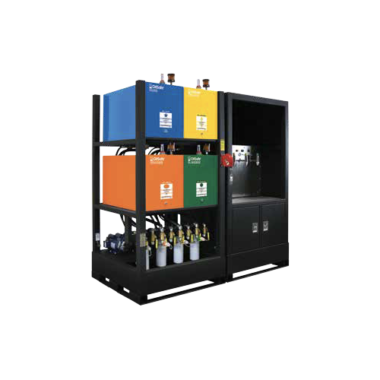
In the vast landscape of industrial infrastructure, oil storage containers stand as unsung heroes, quietly safeguarding one of the world’s most critical resources. Whether it’s crude oil awaiting refinement or refined products ready for distribution, the proper storage of oil is paramount for safety, efficiency, and environmental protection. In this comprehensive guide, we delve into the various types of oil storage containers, their importance, and the best practices associated with them.
Types of Oil Storage Containers:
-
Above-Ground Storage Tanks (ASTs): ASTs are the most common type of oil storage containers and are typically used for storing large quantities of crude oil or refined products. They come in various shapes and sizes, including cylindrical, rectangular, and oval. ASTs are often constructed from steel and equipped with protective coatings to prevent corrosion.
-
Underground Storage Tanks (USTs): USTs are buried beneath the ground and are commonly used for storing smaller quantities of oil, such as those found at gas stations or industrial facilities. They are designed to minimize the risk of leaks and environmental contamination but require regular monitoring and maintenance to ensure integrity.
-
Drums and Barrels: These smaller containers are used for transporting and storing relatively small quantities of oil. While not suitable for long-term storage of large volumes, drums and barrels are convenient for short-term storage or transportation purposes.
-
Intermediate Bulk Containers (IBCs): IBCs are versatile storage containers that strike a balance between the capacity of ASTs and the mobility of drums. They are commonly used for storing and transporting various types of oils and chemicals and are designed to be stackable, making them space-efficient.
Importance of Proper Oil Storage:
-
Safety: Proper oil storage is essential for ensuring the safety of workers, the surrounding community, and the environment. Poorly maintained storage containers can pose significant safety hazards, including fire, explosion, and environmental contamination.
-
Environmental Protection: Oil spills and leaks can have devastating consequences for ecosystems and local communities. By properly storing oil in secure containers and implementing spill prevention measures, the risk of environmental contamination can be minimized.
-
Regulatory Compliance: Many jurisdictions have strict regulations governing the storage of oil and other hazardous substances. Compliance with these regulations is crucial for avoiding fines, legal penalties, and reputational damage.
-
Asset Protection: Oil is a valuable commodity, and proper storage helps protect this asset from theft, vandalism, and unauthorized access.
Best Practices for Oil Storage:
-
Regular Inspection and Maintenance: Inspect oil storage containers regularly for signs of corrosion, leaks, or damage. Implement a maintenance schedule to address any issues promptly.
-
Spill Prevention and Containment: Install spill prevention and containment measures, such as secondary containment systems and spill kits, to minimize the risk of spills and leaks.
-
Proper Labeling and Documentation: Clearly label oil storage containers with the type of oil being stored and any relevant safety information. Maintain accurate documentation of oil inventories, inspections, and maintenance activities.
-
Training and Education: Ensure that personnel responsible for oil storage are properly trained in safe handling procedures, spill response protocols, and regulatory compliance requirements.
-
Emergency Preparedness: Develop and implement an emergency response plan that outlines procedures for responding to oil spills, leaks, fires, and other emergencies.
In conclusion, oil storage containers play a crucial role in ensuring the safe and efficient storage of one of the world’s most vital resources. By understanding the different types of storage containers, recognizing their importance, and implementing best practices for storage and maintenance, industries can mitigate risks, protect the environment, and safeguard their assets.




